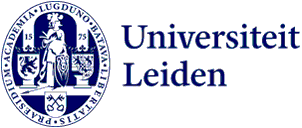‘Searching for Justice’ at 2024 EPFR Research Day
On Friday 22 March, the Effective Protection of Fundamental Rights research programme held a successful Annual Research Day (Toogdag) in Gravensteen building. This year’s theme was ‘The Concept of Justice in a War Era: The Cases of Gaza, South Sudan and Bosnia and Herzegovina’.

As the research programme coordinator, Nadia Sonneveld gave an opening speech during which she announced the launch of a new Scholars at Risk initiative at Leiden Law School. According to their website, Scholars at Risk is 'an international network of institutions and individuals whose mission it is to protect scholars and promote academic freedom'. As an organisation and network, SAR provides advisory services to universities wishing to host threatened scholars. If you’re interested in joining, please send an email to epfr@law.leidenuniv.nl.
Presentations
Henning Lahman, Assistant Professor at eLaw, gave a presentation entitled ‘Fact-Making in Armed Conflict and the Role of Digital Technologies: Lessons from Gaza,’ during which he explained how the increasing availability of digital open-source information has created a shift in how facts are produced, by whom and the types of facts available. He concluded his presentation with three main observations on the use of open-source information: the limits of ‘open verification’, the emulation of aesthetic language as a way of casting doubt on any emerging narratives of what may actually have happened and bystander complacency and complicity.
The next presenter was Bruno Braak, a postdoctoral researcher involved in the ‘Access to Justice in Libya’ (2021-2025) project at the Van Vollenhoven Institute for Law, Governance and Society. His presentation topic was ‘Justice Systems and Non-Violent Dispute Resolution in New Wars: Insights from Libya and South Sudan’. He argued that in Libya and South Sudan, dispute resolution forums remained operational in the geographical and temporal proximity of war. He elaborated on three insights: (1) war, highlighting how peace is often quite local and war is not constant; (2) legal pluralism, where the fragmented conjuncture of war results in highly localised legal pluralism configurations; (3) power and accountability, which places people below, before or beyond the law.
This session was moderated by Giulia Pinzauti, Assistant Professor at the Institute of Public Law and the Grotius Centre for International Legal Studies.
Introducing new EPFR members
After the break, three EPFR members who joined the programme over the past year introduced themselves, their research and how their research relates to the EPFR research programme. First of all, Carlotta Rigotti, a postdoctoral researcher at eLaw, presented her work on the intersection between law, technology, gender and sexuality. She is currently working on the Horizon Europe Bias project, which explores the diversity biases of AI within the labour market. She is also involved in the NWA project on vulnerability and social media.
Afterwards, Elias Tissandier-Nasom, a PhD candidate within Child Law, gave a snapshot of his comparative research on asylum applications submitted by LGBTQIA+ people in Netherlands and France. He is currently working on the credibility assessment used for asylum applications submitted by minors on the grounds of sexual orientation and gender identity. His fieldwork will begin soon.
Lastly, Masha Medvedeva, Assistant Professor at eLaw and Business Studies, discussed her research on legal judgment prediction. During her presentation, she described the limitations of AI.
‘Searching for Justice’ screening
The last part of the Research Day was dedicated to a poignant documentary entitled 'Searching for Justice'. Before the screening, Ado Hasanović, director of ‘Searching for Justice’, and Nadia Sonneveld, writer and producer of the documentary, explained how the idea behind the documentary emerged and how it became a reality. The documentary was produced as part of the Honours course on ‘Using the Rule of Law to Close Dark Chapters of History? The Case of Bosnia-Herzegovina' at Leiden Law School. It features students from Leiden University and Sarajevo University who conducted interviews with survivors of war and genocide from Bosnia and Herzegovina, exploring their perspectives on justice. After the screening, Ado, Nadia and two students from the Honours course who participated in the making of the documentary, Kaat Hogendoorn and Xinyi Zhang, held a Q&A session. During this session, the audience had the opportunity to ask questions about the content, process and narrative decisions.
